SUPPORT VITAL FOR TYRE INDUSTRY
- By 0
- June 24, 2020
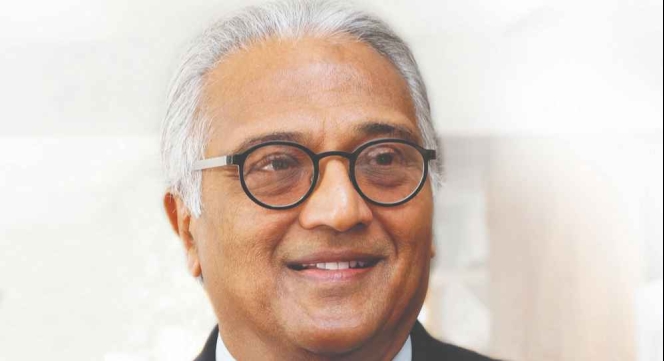
What are the immediate impacts of COVID-19 on the Indian tyre industry?
Currently, the tyre industry is battling one of the worst crises. The demand for tyres has fallen drastically given consecutive lockdowns and restrictions on mobility. The auto industry is also in the grip of a slowdown. Moreover, the cash flow situation in the tyre industry is under severe stress because of the prolonged shutdown. The industry is poised to lose sales of around Rs 10000 crore for nearly 40-day lockdown and the time taken to resume normal operations. There is massive blockage of funds by way of inventories of raw materials and in the form of finished goods in the supply chain process.
The industry has resumed operations in a limited way. However, it may take another six months for the entire operations to stabilise since the industry is passing through huge cash flow problem following supply chains getting stuck.
What kind of support does the industry expect from the government in this tough time?
Support to the tyre industry both in the forms of fiscal stimulus and a policy push to address challenges being faced by the industry is vital to set the wheels of economy in motion.
To overcome this unprecedented situation, ATMA has submitted that tyre industry concerns are addressed on top priority. Partial reduction of customs duties has been sought for raw materials of the tyre industry as some of these critical raw materials are either not domestically manufactured or there exists a demand-supply gap locally. Also, a majority of raw-materials of the tyre industry attracts anti-dumping duties notwithstanding the domestic demand-supply deficit, thereby impinging adding to the cost for the domestic tyre industry. ATMA also seeks long outstanding correction of inverted duty structure as the customs duty on the critical raw material of tyres, viz. natural rubber is significantly higher, which is 25%, than the basic customs duty on the finished product, i.e. tyres, which is between 10% and 15%. In contrast, the effective or actual rate of duty is even lower, at times as low as ‘nil’ to 5%, under various trade agreements. These are some of the support measures we have asked for to ride through the current crisis.
Being the largest stakeholder, what kind of support tyre companies can give small players in the supply chain?
We believe we are in it together. The tyre industry has generously contributed in monetary and other terms in the country’s fight to contain the pandemic. The interest of the entire value chain is important to us. The tyre sector is a raw material intensive industry, and for it to be competitive, the entire supply chain must be competitive.
Much before the pandemic came to disrupt operations; we have been holding ATMA Partners Summit, a ‘by invitation only’ event wherein the raw material partners across the board are invited to exchange notes on overcoming concerns and making the most of emerging opportunities. In its width of participation, ATMA Partners’ Summit is perhaps unparalleled.
Talking about MRF, we have committed a sum of Rs 25 crore to PM Cares Fund to support various government measures in those States where MRF’s factories are located. Just before the lockdown got implemented, MRF purchased large quantities of natural rubber, even beyond our requirement, to avoid a fall in its price which would have hurt the planters. When the lockdown was announced, around 100 trucks were outside of our warehouses to deliver rubber when all our warehouses were full. So, the tyre industry is a responsible corporate citizen conscious of its role in the value chain.
Cost-cutting is inevitable that will also lead to curbing in investments in technologies. Do you think such circumstances will put us (Indian tyre companies) behind in the competition for the new mobility / CASE?
The pandemic is not India specific. It has caused an existential crisis for the entire world. Cost-cutting measures will be the norm worldwide. India is poised to bounce back faster, given the policies of the government with a sharp focus on Self-reliant India and the trust surplus that India has gained during the crisis.
The investment in R&D is there to stay. However, plant expansions could be delayed considerably due to uncertainty of demand coupled with limited liquidity.
Industries in China are ramping up production. Do you think that going forward Chinese tyre companies will able to increase the market share in India?
Yes, dumping of tyres from China is a looming threat. Though an Anti-Dumping Duty (ADD) and a Countervailing Duty (CVD) is in place on Truck and Bus Radial (TBR) tyre imports into India from China. Total tyre imports from China have increased at an alarming rate of 20% YoY during Apr-Jan, FY20. What is of bigger concern is that in recent years, tyre imports into India have increased significantly from Thailand, mainly since Anti Dumping Duty and CVD was imposed on Radial CV tyre imports from China. Likewise, tyre production originating from Vietnam, Indonesia and other ASEAN countries pose a significant threat to the tyre industry in India as a majority of such output and imports can be directly or indirectly traced to be of Chinese ownership or collaborations. Steep and significant increase in radial CV tyres from Thailand confirms this development. ATMA has sought immediate imposition of interim Anti-Dumping Duty (ADD) on such indiscriminate and dumped imports and awaits an early action by DGTR, Ministry of Commerce.
Do you think that we need to revive the outlook for the long-term and what will it be?
Nothing has caused the kind of uncertainty as Covid-19 has led to. Yes, the outlook needs to be revised, but by how much that depends a lot on the growth projected for the overall economy and the auto sector.
As of now, we believe it will take another six months for operations to normalise at tyre plants if there is no sudden spike in Covid-19 cases and lockdowns are not prolonged or implemented again. However, tyre plants have started operating in all earnestness, supply chain issues notwithstanding.
Alessio Iacovelli Named Deputy Director Replacement Sales West Europe At Linglong Tire
- By TT News
- October 10, 2025
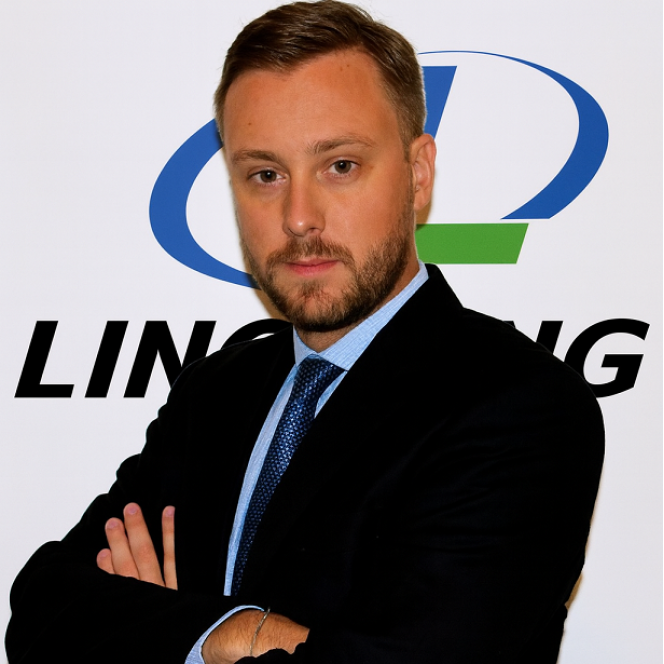
Linglong Tire has announced the promotion of Alessio Iacovelli to Deputy Director of Replacement Sales for Western Europe, effective 1 September 2025. In this elevated role, Iacovelli will take on leadership of the regional sales team with a mandate to accelerate business development. His key objectives will include forging strategic alliances and implementing programmes to strengthen customer loyalty. Iacovelli will report directly to Lisa Zhao, the Director of Replacement Sales for Western Europe, and will collaborate with her to manage key markets, including Germany, the UK, Italy and Spain.
Iacovelli, who began his career with Goodyear and Nexen, first joined Linglong Tire at the end of 2022 as a Sales Manager. In that capacity, he demonstrated significant success in developing the Southern European aftermarket, where he expanded the brand's footprint, defined effective growth strategies and secured robust partnerships with distributors. This strategic appointment and the restructuring of the sales leadership underscore Linglong Tire's intensified focus on achieving its ambitious growth targets across the European continent.
Iacovelli said, "I am very pleased to have been promoted to Deputy Director Replacement Sales West Europe at Linglong Tire. We have fantastic products such as the Sport Master 4S and the Sport Master Winter, both successfully tested in the recently published tyre tests. We have a state-of-the-art development centre in Germany and a new tyre plant in Europe and are successful in original equipment – ideal conditions for achieving our ambitious goals together with my team and the colleagues in Hannover and continuing to grow, especially in Europe."
ARLANXEO To Close French Plant As Chemicals Sector Struggles
- By TT News
- October 10, 2025
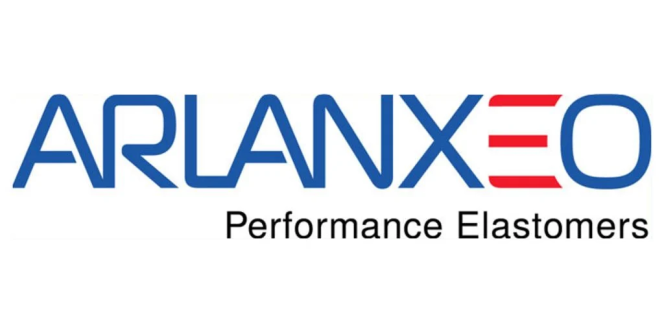
German synthetic rubber maker ARLANXEO has launched consultations with worker representatives over the potential closure of its Port Jerome facility in France, citing persistent weak demand and declining competitiveness in the European chemicals industry.
The company, which is majority-owned by Saudi Aramco, had begun an information and consultation period with the Works Council at the site, located in northern France. A final decision on the closure will be taken after the mandatory consultation process concludes and approval is obtained from the French labour authorities, DREETS.
“The European chemical industry continues to face persistent weak demand and declining competitiveness driven by rising costs, unbalanced global markets, and increased regulatory pressure,” said Stephan van Santbrink, ARLANXEO chief executive.
“These conditions have generated a significant burden on the sector across the regional value chain. ARLANXEO has not been an exception to these challenges. The Port Jerome site has remained in a structurally loss-making position. Despite numerous improvement efforts, we do not foresee a viable path to a sustained structural improvement.”
The company did not disclose how many jobs would be affected by a potential closure, nor did it provide details on the facility’s production capacity or annual output.
Van Santbrink acknowledged the impact on workers, saying: “We recognise the impact a potential closure may have on our employees, and we regret the need to consider these steps. We will continue to treat all employees with respect. If we decide to cease operations at the site, we will do our utmost to assist in finding alternative solutions for all impacted employees. In addition, we intend to provide impacted employees with a social plan which reflects their valued contribution to ARLANXEO.”
The announcement adds to a growing list of European chemical producers struggling with high energy costs, sluggish demand and competition from lower-cost producers in Asia and the United States.
ARLANXEO said it would work closely with all affected internal and external stakeholders to minimise the impact of the intended closure.
Continental Appoints Managers For Global Purchasing And Original Equipment Business
- By TT News
- October 07, 2025
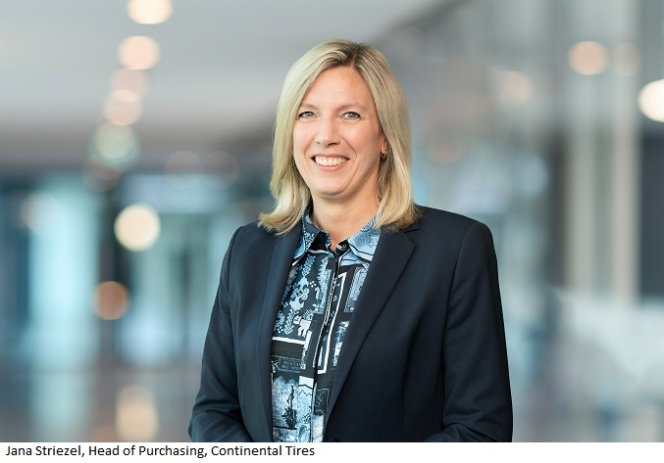
Continental's Tires group sector has strengthened its leadership team with two key internal appointments, effective 1 September 2025. Jana Striezel has been named the new head of global purchasing for Continental Tires, while Dennis Bellmund has assumed leadership of the global original equipment business for both passenger and commercial vehicles. Both executives will report directly to Christian Kötz, the member of Continental AG's Executive Board who leads the Tires group sector.
In her new capacity, Striezel will oversee worldwide strategic and operational purchasing. She brings extensive experience from the automotive industry, having previously held several procurement management roles at Renault, where she led purchasing for the Renault brand and its alliance with Nissan and Mitsubishi in Europe. Her career began at Volkswagen in 2014.

Bellmund, who has a 25-year tenure with Continental, steps into his role following the departure of his predecessor, Manja Greimeier, to the ContiTech sector. His extensive background within the company includes recent responsibility for Continental’s tyre retail operations, alongside prior leadership roles in EMEA supply chain management and sales direction for the European replacement tyre business. These appointments signal a strategic reinforcement of Continental's tyre division leadership.
Kötz said, “We’re delighted to welcome Jana Striezel, a highly skilled manager, to our team. She brings extensive expertise in international procurement and will focus on driving forward our purchasing strategy. In Dennis Bellmund, our global original equipment business has gained a highly experienced leader. Thanks to his many years at Continental, he is familiar with our company and our customers’ needs from many different angles. On behalf of the entire management team, I wish both of them every success in their new roles and look forward to working together.”
“On behalf of the entire team, I would like to thank Manja Greimeier for her successful leadership of our original equipment business and wish her all the best and continued success,” added Kötz.
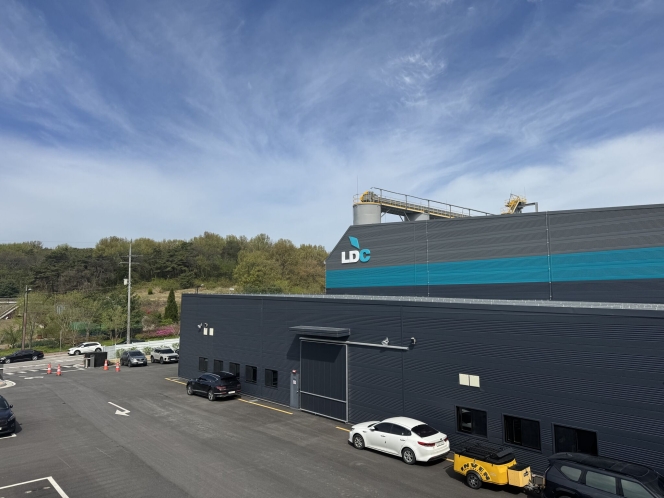
In a significant leadership update, LD Carbon (LDC) has announced a restructuring of the chief executive office at the company. The company confirmed that Seong-Moon Baek will now serve as the sole CEO. This move follows the departure of former co-CEO Yong-Kyung Hwang from the executive position.
The change is effective immediately as the company continues to advance its initiatives in the sustainable materials sector. Chief Commercial Officer Bumseek Kim (BK) formally communicated the development in a statement, saying, “Should you have any questions, please feel free to contact me at any time.”




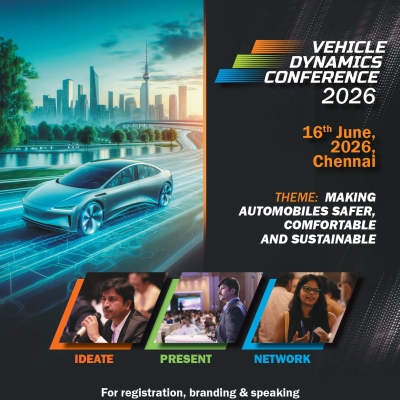

Comments (0)
ADD COMMENT